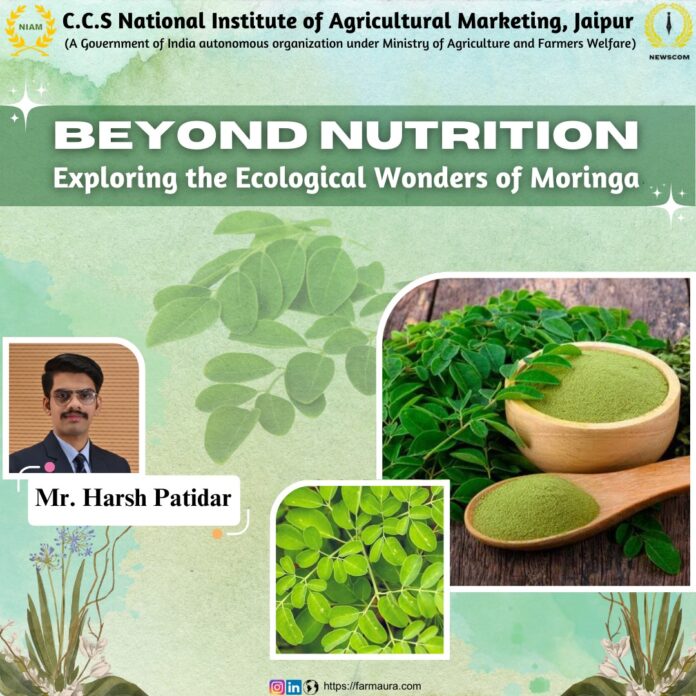Moringa oleifera, popularly known as the “Moringa crop,” is a versatile and highly nutritious plant. Its exceptional nutritional value has made it a popular ingredient in health foods, supplements, and drinks. Moringa’s resilience to different climates makes it ideal for sustainable agriculture and climate change mitigation. It is also found in natural skincare products and creative culinary dishes. The increasing demand for moringa creates economic opportunities, especially for small-scale farmers in rural areas. However, sustainable and responsible practices are crucial to ensure the plant’s longevity. Ongoing research continues to unveil new uses for moringa, thanks to its therapeutic properties.
Moringa, an extraordinary plant, showcases nature’s diverse benefits and nutrition. Highly regarded for its versatility and nutrient-rich composition, moringa is widely used in functional foods, supplements, and health drinks. Its resilience and adaptability to various climates make it a key player in sustainable agriculture, bolstering efforts to address climate change. Beyond its agricultural significance, moringa has culinary applications and contributes to developing environmentally friendly products.
Nutritional powerhouse: A crop rich in vitamins, minerals, and protein, has become a symbol of healthy living. Its leaves, seeds, and other parts are celebrated for their ability to combat dietary insufficiencies and malnutrition. Its nutritional prowess has made it a key ingredient in functional foods, supplements, and health beverages, supporting the fight against food deficiencies and nourishing communities worldwide.
Moringa is a hardy tree that can grow in harsh conditions, including drought, making it resilient to climate change. This resilience helps farmers maintain stable yields, increasing climate adaptation. The crop also has a high capacity to absorb carbon dioxide through photosynthesis, making it a climate-friendly choice. By removing greenhouse gases and improving soil quality, it contributes to climate mitigation. Additionally, its expansive root system allows it to efficiently use water during dry periods, further enhancing agricultural stability. Growing moringa promotes sustainable farming by offering solutions to climate change challenges.
Moringa’s Role in Sustainable Agriculture: Moringa contributes significantly to sustainable agriculture, offering ecological advantages that align with modern farming practices. Its unique properties make it an environmentally beneficial option that supports the principles of ecological balance and resource optimization, crucial for modern agriculture. Particularly, moringa’s ability to thrive in arid regions makes it a valuable crop in areas where water scarcity is a concern.
Conclusion: Moringa’s rise from obscurity to prominence is a remarkable story of resilience, adaptation, and far-reaching impact. It showcases the power of nature and human innovation. From tackling malnutrition to promoting sustainability, culinary pleasure, economic empowerment, and groundbreaking research, Moringa’s multifaceted rise highlights its potential to transform lives. As the world focuses on holistic health and sustainable practices, Moringa has emerged as a crucial player in shaping modern choices and prospects. Its impact extends beyond nutrition and commerce, contributing to the broader narrative of sustainability.




